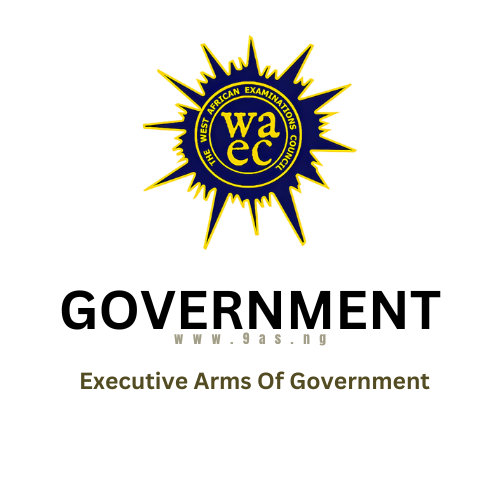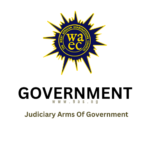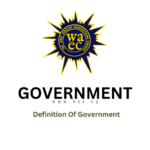THEORY
1. Explain why the powers of the Executive arm of the government have increased in recent years
2. How is the Executive controlled in the exercise of its powers and functions?
3. Highlight the main functions of the executive in a modern state.
OBJECTIVES
1. Which of the following is not a function of the executive arm of government?
A. Interpretation of law.
B. Preparation of budget.
C. Appointment of top government functionaries.
D. Enforcement of law.
2. The power to pardon any citizen charged with any criminal offence lies with the
A. legislature.
B. executive.
C. human rights organizations.
D. judiciary.
3. The Police perform all the following functions except
A. public execution of law breakers.
B. controlling and directing traffic.
C. protection of life and property.
D. enforcement of law and order.
4. The formation and implementation of policies are the major duties of the
A. Police.
B. judiciary.
C. executive.
D. legislature.
5. Which of the following functions is performed by the executive?.
A. Recruitment of judges.
B. Passing of bills to laws.
C. Adjudication of cases.
D. Implementation of policies.
6. The body responsible for the implementation of the law is the
A. judiciary.
B. legislature.
C. executive.
D. court.
7. Which of the following comprises the President, the Ministers, the Civil Servants and the Police? The
A. Armed Forces.
B. Judiciary.
C. Legislature.
D. Executive.
8. Which branch of government is responsible for implementing laws? The
A. Public Service Commission.
B. Local Government.
C. Executive.
D. legislature.
9. Which of the following formulates and implements government policy?
A. Judiciary.
B. Labour.
C. Executive.
D. Police.
10. The Executive is a body that
A. formulates and implements the policies of government.
B. executes armed robbers.
C. is the most important arm of government.
D. executes contracts.
11. The prerogative power resides with the
A. ombudsman.
B. executive.
C. national assembly.
D. civil organization.
12. The organ of government responsible for implementation of policies in a state is the
A. legislature.
B. judiciary.
C. executive.
D. public bureau.
13. The primary function of the executive is to
A. interpret laws.
B. punish law breakers.
C. make laws.
D. implement government policies.
14. The Executive arm of government refers to a body which
A. supervises councilors.
B. makes laws.
C. administers the law.
D. supervises elections.
15. Which organ of government is vested with the responsibility of initiating bills and recommending them to the legislature for consideration? The
A. Federal House of Representatives.
B. Executive.
C. Congress.
D. Senate.
16. The implementation of government policies is carried out by the
A. Legislature.
B. Judiciary.
C. Ombudsman.
D. Executive.
17. Which of the following controls government expenditure
A. The Courts.
B. The Police.
C. The Treasury.
D. The Public.
18. Which of the following is a function of a head of state?
A. Settles cases.
B. Arbitrates electoral petitions.
C. Creates new constitutions.
D. Receives foreign dignitaries.
19. Planning and formulation of government policies are first initiated at
A. cabinet meetings.
B. media houses.
C. political rallies.
D. open forum.
20. The authority of the state is collectively exercised by the
A. executive, legislature and judiciary.
B. president, governor and chairman.
C. police, army and navy.
D. government, people and the civil servants.
21. Which of the following is an advantage of monocephalous executive?
A. Sharing of power
B. Quick decision making
C. Impartial dispensation of justice
D. Enjoyment of press freedom.
22. In a monocephalous executive system of government, all executive powers are vested in the
A. Chief Justice.
B. President.
C. Prime Minister.
D. Speaker.
23. Maintenance of law and order in a state is the function of the
A. judicial service
B. legislative arm of government
C. citizens of the state
D. executive arm of government
24. An executive president is one who wields the power of a
A. ceremonial president only
B. leader of government business only
C. despot and benevolent dictator
D. head of state and government Judiciary



